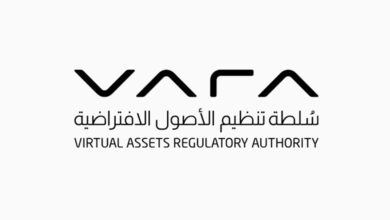Porsche Bullish on Blockchain despite lack of maturity in technology

Volkswagen Group owner of Porsche, is seeking to put the blockchain technology to use. It is working with online clothing retailer Zalando to set up a hackathon to provide innovative ideas for transparency in supplychain, and tracking systems.
As for cars, blockchain technology is expected to provide assistance in many everyday aspects, in diverse respects from locking and unlocking the vehicle to time-limited access authorization that the owner is able to issue, to improving autonomous driving functions – all of which has to be tamper-proof and impossible to manipulate. Blockchain technology can also facilitate the secure handling of payment processes: parking tickets, toll fees, and energy billing after charging an electric car, for example.
With respect to parking charges, Porsche team which includes Matthias Falkenberg, Tiziana Vicino and Matthias Hub and Quantoz, a Dutch blockchain Technology specialist has built a prototype after they developed a network based on blockchain technology.
In one of the examples is car parking, Porsche takes on the “gateway” role in this project. In other words, the sports car manufacturer unlocks the virtual vehicle for service providers which offer their services via the Porsche platform, such as evopark GmbH – in this case, to enable the straightforward billing of parking fees. Once that door is unlocked, the provider has access to the customer seeking to use their service.
Here’s how it works: the Porsche customer drives to a car park and presents an RFID card for identification at the entrance gateway. The gateway uses electromagnetic waves (radio frequency identification) to transfer the necessary identification data to the car park terminal. When the customer leaves the car park, the ID is transferred again and the parking fee is billed via a virtual customer blockchain wallet, where a data block is generated in order to document the transaction. It’s no longer necessary for the customer to walk to the parking ticket machine, or search out the right small change.
“In this situation, the car park is the transmitter and the customer the recipient of a type of IOU, which details the amount and currency. In the blockchain network, the term for these transactions is ‘You Owe Me’. At the end of the billing period these UOMs are collected by Porsche, and sent back to the provider,” says Falkenberg, explaining the principle. “This process creates new data blocks in the blockchain, the monetary equivalent of which our chosen payment service provider debits from the customer account.” The debited amount for the parking tickets is then transferred to the car park operator by Porsche. “The advantage of this is that we are able to offer our customers services without each of them needing to register for the services in advance,” comments Falkenberg.
Currently (Blockchain-supported parking is at the “proof of concept” stage, as the engineers have proven that the technology works, using a scenario that is specific even though the technology still has a long way to go.
He added that being able to open and close the vehicle remotely is a good example of a benefit of blockchain versus IT networking via central computers. “If the car itself becomes part of the blockchain, a connection can be made locally, for example from a smartphone to the car, and so without being channeled via the internet or computer centers,” Döring points out. “This not only makes the functionality up to six times faster than is possible with current technology, but also increases security as the process is built on efficient cryptographic encryption, as well as being unalterably documented in the blockchain.”
Furthermore, Porsche is working on additional business models based on blockchain, in which the relevant user always retains control of the data, and decides him or herself how it is used. Additionally, all activity throughout is documented in the blockchain, resulting in complete transparency with respect to deletion processes.
From this basis, it will in future be possible to offer autonomous driving with improved functions in future: local data can be used to achieve regional learning effects, and these effects can be securely shared with other vehicles. In this way, the customer will be able to use swarm data, whilst still remaining protected.





